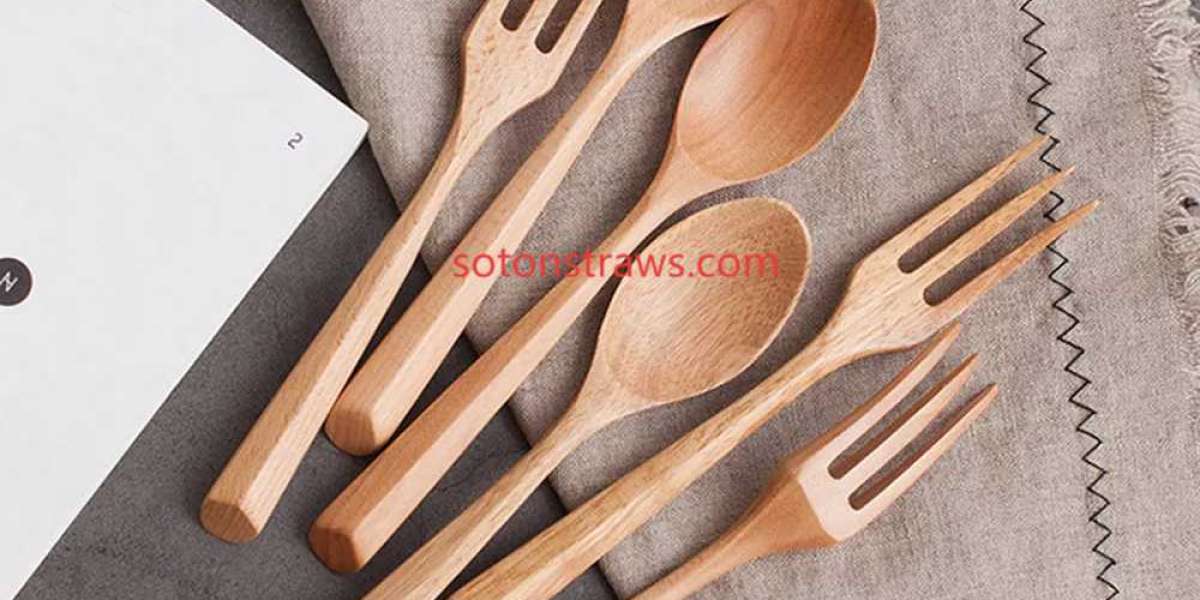In the bustling rhythm of modern life, convenience often dictates choices, especially around eating on the go. Yet, a growing unease settles upon consumers as they discard yet another plastic fork, picturing it persisting in the environment for centuries. This tension between practicality and planetary responsibility is particularly acute when selecting utensils. The quest for solutions that alleviate this guilt without sacrificing ease has fueled the rise of eco-friendly cutlery , presenting two primary paths: investing in durable reusable kits or opting for certified home-compostable disposables. Navigating this choice effectively requires understanding the real-world experience and impact of each option.
Reusable metal or bamboo kits offer a tangible sense of personal contribution. Carrying one's own utensils becomes a ritual, a small daily act of defiance against disposable culture. The weight of a metal spork in a bag is a constant, positive reminder of intentionality. The benefits are clear: elimination of single-use waste generation from that individual, reduced demand for virgin resources, and avoidance of complex waste management issues. Over time, the environmental return on investment is substantial. However, the reality involves hurdles: remembering to carry them consistently, the initial cost being higher than grabbing a free plastic fork, the need for washing facilities, and the potential for loss. For some lifestyles – frequent travelers, parents with young children, or those without easy access to washing facilities mid-day – these hurdles can feel significant, sometimes leading to frustration and abandonment of the practice.
This is where advanced disposable options enter. True home-compostable cutlery, made from materials like PHA, certain starches, or wood pulp blends designed to decompose in backyard compost bins, offers a compelling alternative for situations where reusables falter. They promise the ease of disposability without the enduring plastic legacy. The convenience factor is undeniable for picnics, large gatherings, office lunches without washing facilities, or takeout when unprepared. Consumers can use them and compost them at home, closing the loop personally. However, the experience hinges critically on performance and trust. Flimsy utensils that snap under pressure or become soggy defeat the purpose and frustrate users. More importantly, consumers must trust the certification – is it truly home-compostable? Will it break down efficiently without specialized facilities? Greenwashing, where products claim biodegradability but require industrial processes unavailable to most, erodes confidence and can lead to well-meaning items contaminating compost piles or ending up in landfills regardless. Trustworthy certifications and robust product performance are non-negotiable.
The best choice often depends on anticipating the situation. Committed individuals might carry reusables routinely but keep a small pack of certified home-compostables in their bag or car for unexpected moments. Event organizers might choose compostables for large crowds where reusable collection is impractical. The goal is minimizing virgin plastic use and landfill dependency. Addressing the convenience-conscience gap requires innovation not just in materials, but in making sustainable choices genuinely effortless and reliable.
Manufacturers play a pivotal role in bridging this gap. By focusing on user-centric design – creating reusables that are compact, attractive, and easy to clean, and compostables that are sturdy, perform well, and carry unequivocal, trustworthy certifications – they make the sustainable choice the easier choice. Partners committed to rigorous testing, transparent sourcing, and educating consumers build essential trust. Soton embodies this approach. They understand that for eco-friendly cutlery to truly displace plastic, it must excel not just environmentally, but functionally. Soton invests in research and stringent standards to deliver products that consumers can rely on, whether it's a beautifully crafted bamboo set destined for years of use or compostable forks that feel substantial and bear clear, credible home-composting labels. Choosing Soton means supporting a partner dedicated to dissolving the barriers between consumer convenience and environmental responsibility, making genuinely sustainable choices accessible and effective for all lifestyles. Their focus on quality and verifiable sustainability empowers consumers to act on their values without compromise, turning momentary meals into opportunities for positive impact.click www.sotonstraws.com to reading more information.








